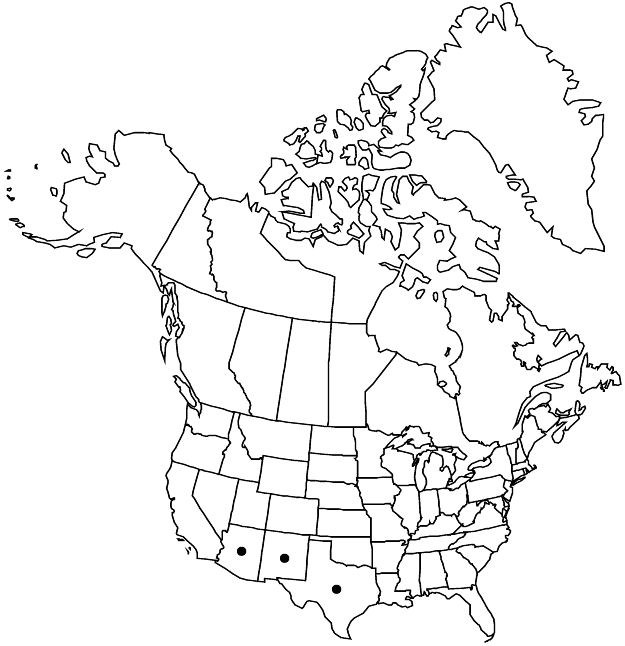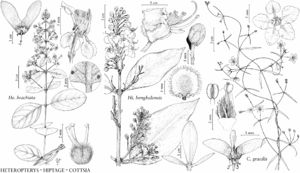Cottsia gracilis
Contr. Univ. Michigan Herb. 25: 163. 2007.
Leaf blades very narrowly lanceolate or elliptic, larger blades 12–40(–50) × (1.5–)3–7(–9) mm, length 4–10 times width, base cuneate or rounded, apex acute, obtuse, or occasionally rounded, margins very often bearing few to many cilia or toothlike projections distally, surfaces persistently sericeous or sometimes glabrescent. Pedicels 4–8 mm, 0.7–1.8 times as long as peduncles. Samaras 9–15(–17) mm, nut 1.5–2.5 × 3–4.5 mm. 2n = 40 (Mexico).
Phenology: Flowering and fruiting Mar–Oct(–Jan).
Habitat: Open rocky slopes and deserts.
Elevation: 300–1600(–2100) m.
Distribution

Ariz., N.Mex., Tex., Mexico (Baja California, Baja California Sur, Chihuahua, Durango, Nuevo León, Sonora, Zacatecas).
Discussion
Cottsia gracilis is widespread in Arizona, absent only from the northeastern part of the state, but otherwise in the flora area is restricted to southern New Mexico and trans-Pecos Texas.
Selected References
None.
